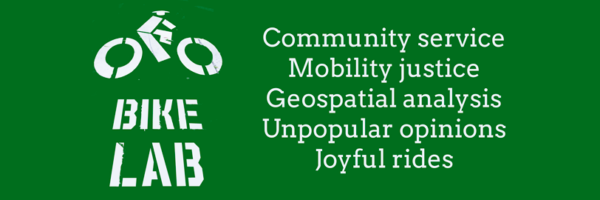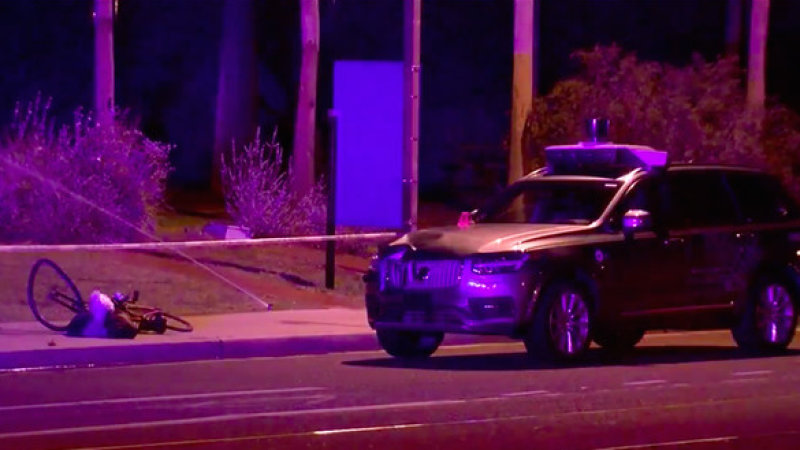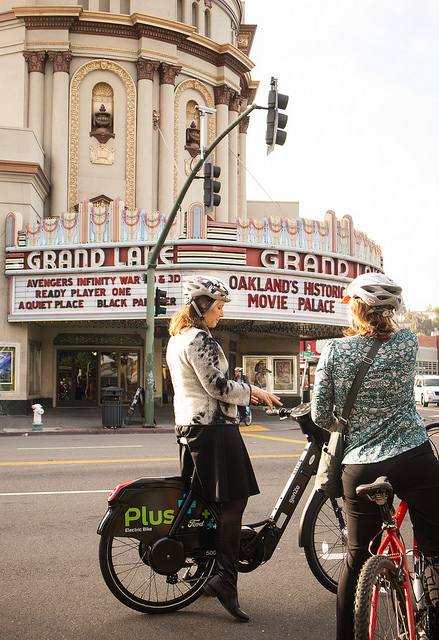This started as an International Women’s Day Twitter thread to honor some of the great women I’ve learned from or worked with as part of The Bike Lab project. As I got into it I thought it deserved a post here, too.
I was reflecting on how many of the people who’ve inspired my work are women. I think that’s partly because I’ve really never been comfortable with patriarchy, even as I’ve benefitted from and participated in it. I’ve always felt like an outsider, wanting to be critical of the power structure. I think about how I declared I was a Communist while attending an exclusive private high school in New Jersey during the Reagan era—a fairly radical thing to have done, now that I look back on it, but also something that I was able to get away with precisely because of my status.
(I probably still have my copy of the Manifesto around somewhere).
Anyway, I think part of the reason that female leaders and feminist thinkers appeal to me is that they look at society from a critical angle, based on their own experiences of oppression. And part of why I used Peggy McIntosh’s piece as the theme for my thesis work is that I really appreciate her investigation of how those who experience oppression can also unknowingly participate in it.
So, here are some shout outs I want to give to women I’ve read or worked with as part of this project. I hope to read and work with them more.
Writers
Peggy McIntosh
Everyone—male, female, white, black, whatever—should read and understand McIntosh’s “White Privilege: Unpacking the Invisible Knapsack,” which is probably the best thing ever written on interlocking privileges. It leads me to question myself at every point of my work. (As I write this, I’m having to consider whether I’m mansplaining or tokenizing). She calls out the challenge of being both well-meaning and privileged, and gives suggestions for how to examine your participation in systems of oppression, and work to weaken them.
I think a really important part of her piece is that she personalizes the criticism. She is not criticizing others for participating in systems of oppression; she is noticing that she herself has been unconscious of her own participation in them. She challenges us to look at our own actions first.
It seems to me that obliviousness about white advantage, like obliviousness about male advantage, is kept strongly inculturated in the United States so as to maintain the myth of meritocracy, the myth that democratic choice is equally available to all. Keeping most people unaware that freedom of confident action is there for just a small number of people props up those in power and serves to keep power in the hands of the same groups that have most of it already.
Although systemic change takes many decades, there are pressing questions for me and I imagine for some others like me if we raise our daily consciousness on the perquisites of being light-skinned. What will we do with such knowledge?
Adonia Lugo
Lugo was the first Equity Initiative Manager for the League of American Bicyclists, but her biggest impact came not from what she did in that position, but what she did when she left. Her frustration with being unable to make progress in changing the culture of LAB led her to write “Unsolicited Advice for Vision Zero“, another piece that everyone involved in streets advocacy needs to read. She’s gone on to write a book, “Bicycle/Race: Transportation, Culture & Resistance,” which I’m hoping to hear her speak about soon (she had to cancel a talk here in December; Rich City Rides is planning to bring her back on May 26th).
Her pointed criticism of cycling advocacy resonates on many levels, and I see many parallels in the current YIMBY movement as well. If I had to choose one quote which most connects with the Bike Lab project, it would be:
It’s strange to me that a movement so focused on rejecting car-dominated engineering would think that the solution is more large-scale, top-down planning. Again and again I heard the panelists reference the need for culture change, so I hope that means Vision Zero will fund culture change projects such as community events and bike co-ops where people can develop economic and personal relationships with bicycling.
When I see groups like Rich City Rides, Cycles of Change, the Scraper Bike Team, and Bikes4Life struggling to make ends meet, working with donated equipment and marginal spaces, while we pour millions every year into paint and concrete, I wonder whether we have our priorities right. Between the City of Oakland and Bike East Bay we’re probably spending $3-$5M this year, and that pales in comparison to San Francisco which reports 40 city FTE working on bike and pedestrian projects, plus a budget of over $2M for the SF Bike Coalition. How much of that is going towards culture and community?
LAB, for its part, appears to have abandoned its Equity Initiative.
Melody Hoffman
I’d first heard the phrase “bike lanes are white lanes” while I was in Austin, but the perception that bike lanes are built by and for affluent whites is one of the founding ideas of my research. In her book of the same name, Melody Hoffman explores the signification of the bike lane in urban space, and of bike advocacy in general. Her writing really helped me formulate my ideas about why models of spatial practice taken from Northern Europe are problematic in diverse communities.
Melody also helped me understand more of the social dynamics of Minneapolis-St. Paul. Her insight into the history of the North Minneapolis Greenway project helped highlight the difference between outreach and inclusion, and explain why that project ended up as a planning disaster despite generally good intentions.
Cycling leaders
One thing I observed in my field work is that there are often multiple organizations working on bike and pedestrian issues, and sometimes their interests are in conflict, especially in low-cycling cities. Generally the divisions were along similar lines in different places, with one group focused on funding and infrastructure, and another focused on community development. And in every case I studied, the community-focused group was run by a woman.
Charlotte Spokes People: Pam Murray
Charlotte is one of the lowest-cycling cities in the country, and when I was there in 2016 it was quite uncommon to see anyone else riding around the city. Pam works to normalize cycling by running training classes and organizing regular casual group rides around the city. Her Plaza-Midway Tuesday Night Ride series regularly sees 50+ participants riding together and visiting one of the many Bike Benefits businesses around the city.
She was super-helpful to my field work, loaning me a bike and showing me all the best (and some of the worst) places to ride in town. And I love the apple (her purse) on her handlebars.
Bike Austin: Mercedes Feris
Mercedes was the Executive Director of Bike Austin while I was visiting. Bike Austin is a traditional advocacy organization, but it has much more of a community ride focus than most. On its web site, the first link is “Ride” with a link to their huge ride calendar. (It should be surprising that Bike East Bay and SF Bike Coalition don’t have such a thing).
She very much wants to model cycling as an every-day activity not requiring special equipment; something of a challenge in the home of Lance Armstrong. I joined her leading a ride from one brewery to another in street clothes and sandals.
She also works to advocate for cyclists of color, who in Austin (as in many cities) are often marginalized from mainstream discussions. A (clueless) commissioner had recently voted against a project because, “A lot of Mexicans aren’t going to be riding bikes,” despite all evidence that Hispanic/Latino people are more likely than Whites to ride.
MoveMinnesota, Jessica Treat
Jessica is Executive Director of MoveMinnesota, a non-profit focused on transportation demand management, whose tag line is “People first. Mode second.” That reflects a vision which includes needing to meet people where they are, and connect with communities to effect change. She helped me understand the cultural differences between Minneapolis and St. Paul which contribute to the four-fold difference in cycling rates between the two cities.
Move Minnesota is dedicated to on-the-ground organizing in the Twin Cities metro. We aim to speak with, not for, community–and to elevate voices that wouldn’t otherwise be heard.
Bike East Bay, Ginger Jui
I’ve known Ginger (who identifies as gender non-binary, but I think that still counts for International Women’s Day) for many years, and I’m excited to see what they will accomplish as Bike East Bay’s new Executive Director. Ginger comes from a different perspective than many bike advocates; her interest is in community rather than infrastructure. I’ve worked with them pretty extensively on PedalFest, one of Bike East Bay’s biggest events, which is really fun and community-oriented. She also showed up and spoke powerfully at the Rally for Naj in Oakland.
And to top it all off, Ginger is also non-bike-nary: we’ve done a number of unicycle rides together.
Walk Oakland Bike Oakland, Chris Hwang
I’ve had the privilege to work with Chris and WOBO for several years now. WOBO is conceived as a community-building organization, and over the years Chris has done a great job of building it up. At last year’s Bike to Work Day (a partnership of WOBO and Bike East Bay) she was granted the 2018 Anthony Grassroots Prize from the Rose Foundation.
WOBO’s Paint the Town program has been a great success. On the tour of the street murals I led a few months ago, we heard that directly from the community about how their project (on Ayala) was a powerful tool to bring the neighborhood closer together.
WOBO is a volunteer organization, but Chris is awesome in her day job too, working for First 5 Alameda for many years until recently moving over to be Director of Data and Evaluation at Oakland Promise.
Conclusion
There are many more powerful women in cycling who I haven’t had the opportunity to work with as closely. Lily Brown (OakDOT) is doing amazing work with the community engagement for the Oakland Bike Plan. Tamika Butler’s talk on Planning While Black should be eye-opening to anyone involved in planning, and her Twitter feed is a daily class in intersectionality. Jennifer Dill is one of the best academic researchers on urban cycling. Barb Chamberlain is among the governmental active transportation leaders nationally.
Thanks to all of you for the work you do, and for inspiring mine.






